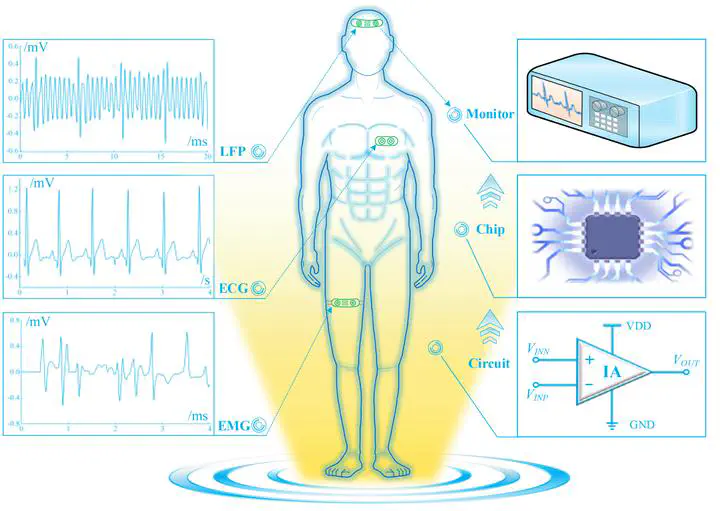Analog Front-End Input-Impedance Boosting Techniques for Bio-Potential Monitoring—A Review

Abstract
Physiological information provided by bio-potential signals is essential and pivotal for biomedical sensors. As the first stage in the signal chain of the sensor, impedance matching of the analog front-end (AFE) is critical for determining signal integrity. AFEs require high input impedance to minimize the effects of electrode impedance mismatch. A significant problem is that the input impedance is affected by parasitic capacitances from the integrated circuit (IC) package, electrode cables, and internal chips. This article aims to summarize the development of AFE impedance-boosting techniques for bio-potential monitoring. The scope of this work includes a review of common architectures for instrumentation amplifiers (IA), mechanisms for input impedance reduction, and a comparison of impedance boosting factors (IBF) employed to evaluate the efficiency of impedance enhancement. Techniques schemes for boosting input impedance in architectures are then surveyed and the contributions and drawbacks of these techniques are discussed. Finally, the state-of-the-art designs of AFE are compared and summarized, along with an analysis of the trend toward enhanced input impedance in bio-electrical signal acquisition. These provide useful references for AFE designers.